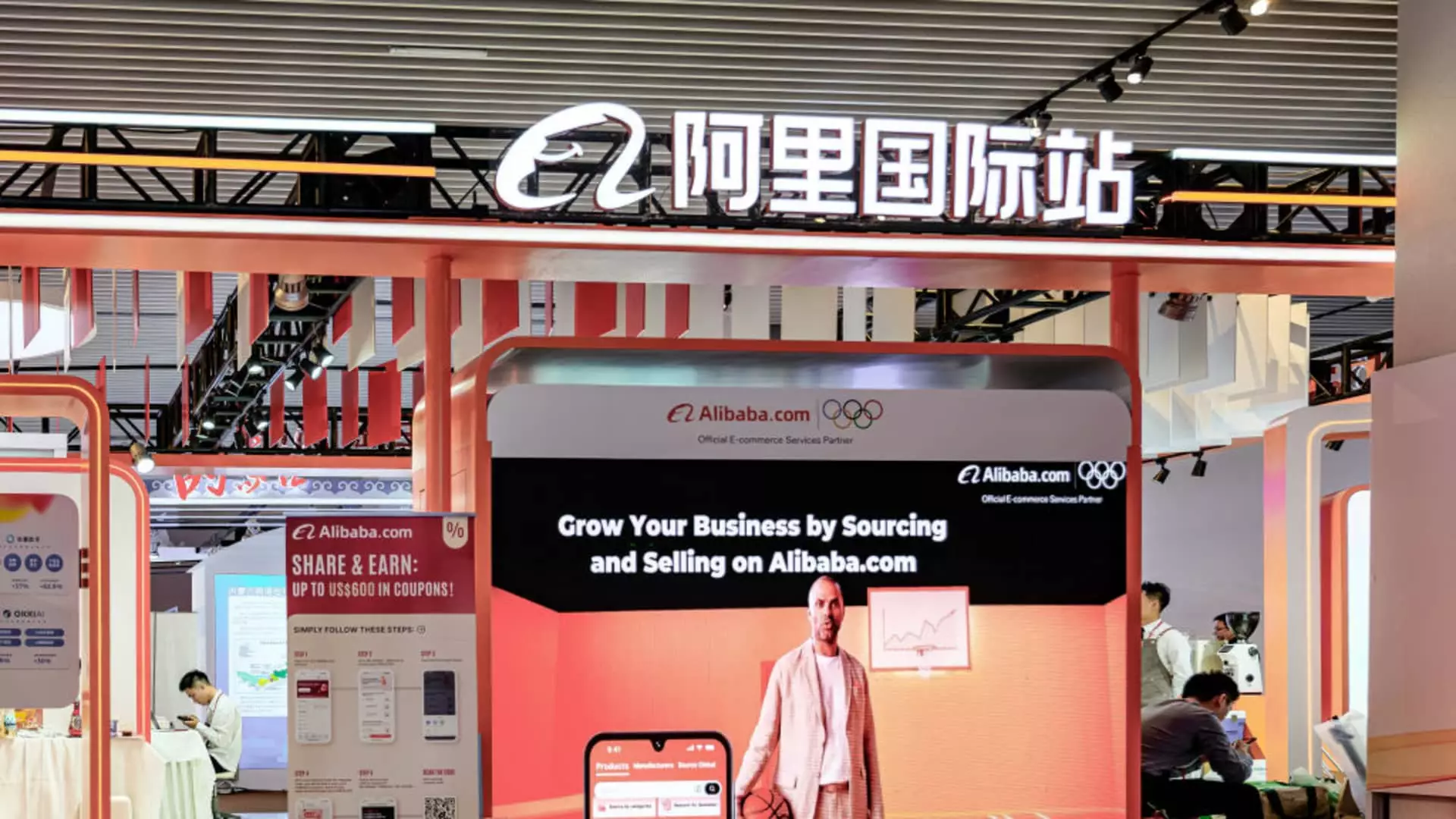In the ever-evolving landscape of e-commerce, artificial intelligence (AI) is making significant inroads, revolutionizing how businesses source supplies and engage with customers. One notable advancement comes from Chinese e-commerce powerhouse Alibaba, which recently introduced an AI-driven search engine named Accio. This tool aims to empower small businesses in Europe and the Americas, facilitating their access to wholesale products while capitalizing on the capabilities of generative AI. As the market grows more competitive, Alibaba’s innovative approach could redefine sourcing practices for small enterprises, an area that has remained relatively traditional.
Accio, named after the summoning spell from the beloved Harry Potter series, seeks to simplify and enhance the procurement process for small businesses. Alibaba’s president Kuo Zhang revealed that initial trials indicate a 40% increase in purchase intent among businesses that utilized the tool compared to conventional search methods. This statistic highlights the tool’s potential for markedly improving the efficiency and effectiveness of supply sourcing. Accio supports multiple languages, including English, German, French, Portuguese, and Spanish, making it accessible to a diverse user base.
The operational mechanics of Accio are compelling. By employing a combination of text and image prompts, users can swiftly uncover wholesale products along with critical insights such as consumer popularity and projected profit margins. A notable instance shared during demonstrations featured a sports entrepreneur attempting to develop a line of pickleball goods, illustrating how Accio can serve niche markets. At the conclusion of a search, the platform presents several procurement alternatives, enabling businesses to engage directly with suppliers, thus streamlining the purchasing process.
At the core of this new tool lies Alibaba’s Tongyi Qianwen large language model (LLM), which has been trained on extensive datasets to create generative AI functions. Similar in functionality to OpenAI’s ChatGPT, the technology enables the generation of human-like responses to user queries, thus enhancing the user experience. However, it remains unclear whether Accio incorporates AI technologies from external sources, leading to questions about the uniqueness of Alibaba’s offering in the crowded AI marketplace.
Accio is built on a repository of insights derived from 50 million businesses on Alibaba International’s platform, alongside a staggering one billion product listings across more than 100 global markets. Such a vast database equips users with an unparalleled resource for supply sourcing and market analysis. However, the tool’s success hinges not only on its technological prowess but also on how small businesses adapt to incorporating AI into their procurement strategies.
Challenges in AI Integration
Despite the promising metrics and increasing enthusiasm surrounding AI, many businesses remain in the trial-and-error phase concerning the technology’s application. A significant number of small enterprises are still exploring viable pathways to monetize AI-driven solutions. The lack of established best practices can pose obstacles to fully leveraging platforms like Accio. Moreover, while AI can profoundly enhance productivity—as reflected in a Bain & Company survey that revealed 56% of merchants reported a “high positive impact” on productivity—it requires careful integration into existing business models.
Alibaba’s international sector has shown remarkable expansion, yet the company acknowledges that its primary revenue still derives from domestic e-commerce hubs like Taobao and Tmall. This insight indicates a potential risk of overlooking small businesses that might not yet view AI as a viable investment. While innovations are being introduced, it’s crucial for Alibaba to ensure that these solutions resonate with businesses of various sizes and purchasing power.
As e-commerce increasingly intertwines with advancements in AI, tools such as Accio embody a significant shift towards modernized sourcing methodologies for small businesses. While the technology shows promise, the broader challenge lies in encouraging small enterprises to embrace these solutions and invest in their potential. As competitions grow, Alibaba’s continued commitment to enhancing international operations through technological innovation will be key.
Accio represents not just a technological advancement but also a necessity for small businesses seeking better sourcing solutions in an increasingly digital world. Whether it realizes its full potential depends on both Alibaba’s strategic positioning and the willingness of small enterprises to adapt to the changing landscape. The future of e-commerce might just hinge on how effectively these businesses leverage technology and innovation presented by giants like Alibaba.

